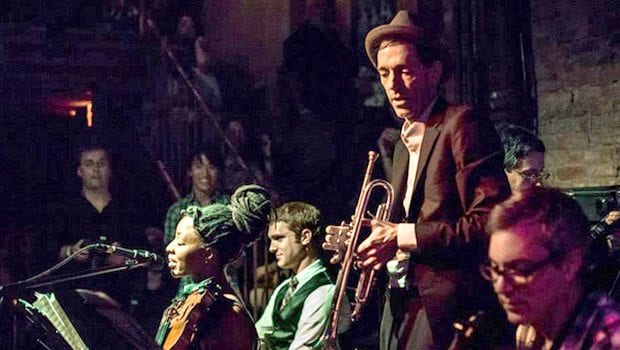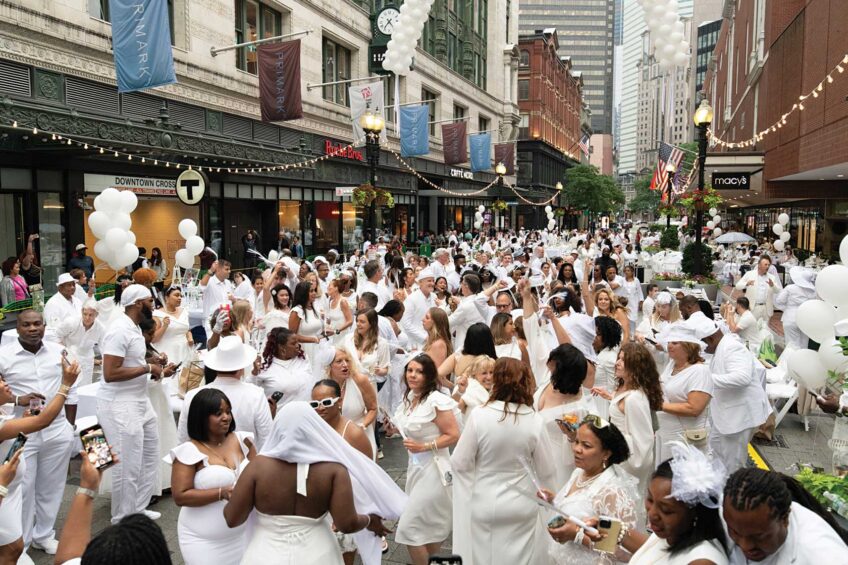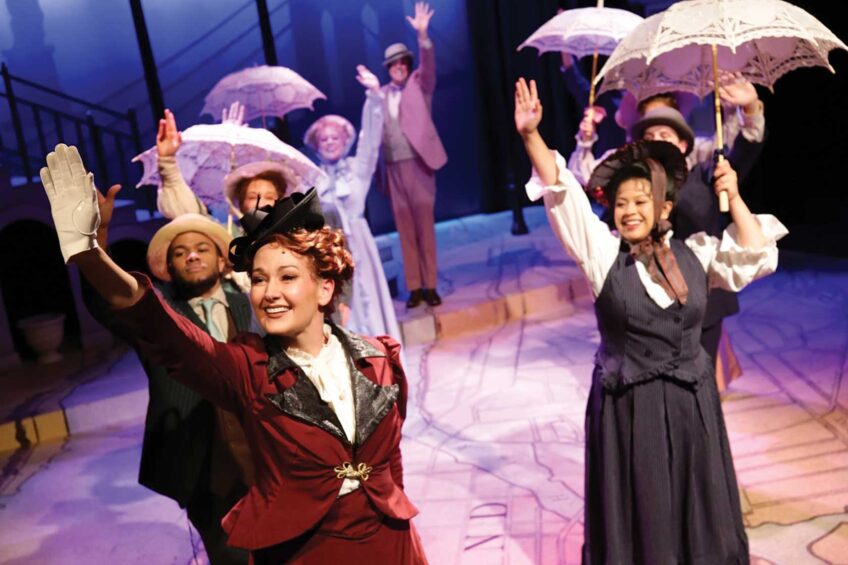

Brian Carpenter’s Ghost Train Orchestra performed recently at Scullers jazz club. The performance featured works by little-known composers such as Raymond Scott, Charlie Shavers and Don Redmond.
Jazz music was birthed by Buddy Bolden in Congo Square, New Orleans in the early 1900s, when his boisterous cornet blazed beyond any known measure or velocity.
By the 1920s and 1930s, jazz had grown up and traveled north into places like Chicago and Harlem — where— for a time it took on different ambitions and new levels of sophistication.
At Scullers Jazz Club near Cambridge last week, Brian Carpenter’s Ghost Train Orchestra gave exacting aural witness to the distinct characteristics of the popular music of those times — a period bookended by the height of Great Gatsby’s Roaring 20s and the approach of the Great Depression.
Carpenter is the orchestra’s conductor and leader of the brass section, playing the traditional and slide trumpet with polished verve and bounce. The music his ensemble renders was written and performed when great discipline and coordination were needed to fit each score tightly into two-minute recorded 78s” — the latest listening technology at the time. Unlike most jazz idioms, there is little room for improvisation in these pieces. Each note is scripted and meticulously placed for performance as written.

The nearly two-hour set at Scullers was composed of set pieces by composers long forgotten by the general public, including Raymond Scott, Charlie Shavers, Don Redmond, Alec Wilder and Reginald Foresythe. Carpenter, an Arlington resident, started rearranging the scores in 2006 to fit the talents of his band members, who are all professional musicians in New York City.
After a cacophonous prelude, reminiscent of avant-gardists Albert Ayler or Anthony Braxton, the orchestra quickly settled into its unique form, evoking the long-forgotten great classical jazz period that would eventually give way to swing and the big band orchestra sound led by Fletcher Henderson, Count Basie and Duke Ellington.

Ghost Train Orchestra features three brass, five reeds, one percussion drum and three strings, which includes the banjo, bass and violin. An occasional vocal was performed by the violinist, Yolanda Scott.
Each piece played at Scullers draws from Carpenter’s two previously produced albums, “Hothouse Stomp,” in 2011 and “Book of Rhapsodies,” released late last year.
“Hot Tempered Blues,” evokes New Orleans, beginning with a nonchalant, languid, bluesy multiple bass opening. It then gives way to accessing almost every texture available from the band’s instruments with solos peppered with supporting syncopation — from the tuba, French horn and clarinet. By song’s end, all instruments collectively create a drenching hot musical potpourri as pure and pleasing as the gumbo from which it had likely taken its inspiration.
“Her Old Man Was (At Times) Suspicious,” composed by Alec Wilder, is a compact story of lovers and the doubt about fidelity that can sometimes rise in all relationships — whether they are simple or complex. In well-coordinated phrasing, domestic satisfaction slips into jaunting insecurity, jealously and dissonant riffs of rage and, then an abrupt ending.
“Hot Bones and Rice,” represents yet another homage to the place of the music’s incubation in New Orleans. In it are found the tonal shades of Sidney Bechet, King Oliver and Louis Armstrong. Played with a reverence or the sacred and the profane, Carpenter’s orchestra translates the essence of the music with flare and dedicated passion.
Carpenter is a jazz anthropologist. With his performances, he digs confidently into the genre’s past, producing eloquently the ghost sounds of yesterday when this great music was finding its way and its voice.






